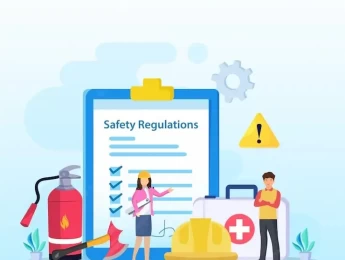This advanced course provides an in-depth exploration of utility-scale solar photovoltaic (PV) farm development. Participants will gain a thorough understanding of solar energy principles, system components, and project planning processes. Emphasising environmental and regulatory considerations, the course equips learners with the knowledge to develop, manage, and optimise large-scale solar PV farms. Through interactive sessions and real-world case studies, attendees will learn to integrate sustainable practices, assess project feasibility, and ensure regulatory compliance, preparing them for careers in the renewable energy sector.
Upon completion of this course, participants will be able to:
- Master the principles of solar energy and photovoltaic technology.
- Identify and configure components of utility-scale solar PV systems.
- Conduct site assessments and feasibility studies.
- Navigate regulatory and environmental compliance for solar projects.
- Integrate solar PV systems with the grid and manage energy storage.
This course is intended for:
- Engineers and renewable energy professionals.
- Project managers and developers in solar energy.
- Environmental consultants and analysts.
- Policymakers and regulators.
- Students in engineering and environmental sciences.
This course uses a variety of adult learning styles to aid full understanding and comprehension.
- Interactive lectures and discussions.
- Practical case studies and examples.
- Group projects and collaborative exercises.
- Hands-on training with assessment tools.
Day 5 of each course is reserved for a Q&A session, which may occur off-site. For 10-day courses, this also applies to day 10
Section 1: Introduction to Solar Energy and Photovoltaics
- Overview of renewable energy sources
- Basic Principles and Technology of Solar PV
- Types of solar cells and applications
Section 2: Components and System Configurations
- Detailed study of PV system components
- Design configurations for utility-scale farms
- Performance analysis and optimisation
Section 3: Site Assessment and Project Planning
- Conducting site selection and feasibility studies
- Solar resource assessment techniques
- Environmental and land use considerations
- Financial modelling and project economics
Section 4: Regulatory and Environmental Compliance
- Navigating regulatory landscapes
- Permitting processes and impact assessments
- Incentives and policies for solar energy
Section 5: Grid Integration and Energy Management
- Integrating PV farms with the electrical grid
- Energy storage systems and management
- Case studies of successful solar PV projects
- Best practices in project management
Upon successful completion of this training course, delegates will be awarded a Holistique Training Certificate of Completion. For those who attend and complete the online training course, a Holistique Training e-Certificate will be provided.
Holistique Training Certificates are accredited by the British Assessment Council (BAC) and The CPD Certification Service (CPD), and are certified under ISO 9001, ISO 21001, and ISO 29993 standards.
CPD credits for this course are granted by our Certificates and will be reflected on the Holistique Training Certificate of Completion. In accordance with the standards of The CPD Certification Service, one CPD credit is awarded per hour of course attendance. A maximum of 50 CPD credits can be claimed for any single course we currently offer.
- Course Code IND01 - 141
- Course Format Classroom, Online,
- Duration 5 days












